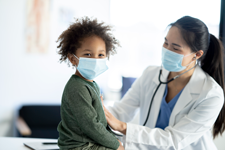August 16, 2022
Pediatric Drug Therapy 2022 | Illicit Substances and their Effects on Adolescents
 Pediatric Drug Therapy 2022
Pediatric Drug Therapy 2022
Yay, Skittles! Illicit Substances and their Effects on Adolescents: A Focus on Substance Use in Detained Youths
On-Demand Program
Speaker
Rachel Ghosh, MSN, PPCNP-BC
Rachel Ghosh is currently in the role of main Medical Provider at the Children Family Justice Center Health Clinic (the clinic inside of King County Juvenile Detention), providing primary, urgent, contraceptive and mental health care to vulnerable youth inside the (in)justice system. She has a background including pediatric primary care, urgent care, concussion management, gastroenterology and motility which helped prepare her for her current role which she truly adores and appreciates. Recently, her medical director, Dr. Do-Quyen Pham and Rachel have focused on substance use disorder with the youth inside of juvenile detention; they have implemented a standardized and supportive withdrawal protocol and they are both X-waivered and able to prescribe Suboxone. They also supply naloxone to many of our youth before they exit the facility as well. They work very hard to connect their youth to the outside substance use counseling and management they need as well. Their Quality Improvement work has been accepted at the Society of Adolescent Health and Medicine this year and is titled: “Improving Quality of Care for Incarcerated Youth with Opioid Use Disorder”.
Target Audience
For pediatric nurse practitioners, family nurse practitioners, physician assistants, clinical nurse specialists, nurses, respiratory therapists, pharmacists and other interested healthcare professionals.
Objectives for Learning Outcomes
At the conclusion of this activity, participants will be better able to:
- Understand trauma-informed care, terminology, and the pathophysiology of substance use and the adolescent brain.
- Describe commonly used illicit substances and their effect on the whole person (and their relationships).
- Understand substance use management.
- Know about useful tools and resources for all providers.